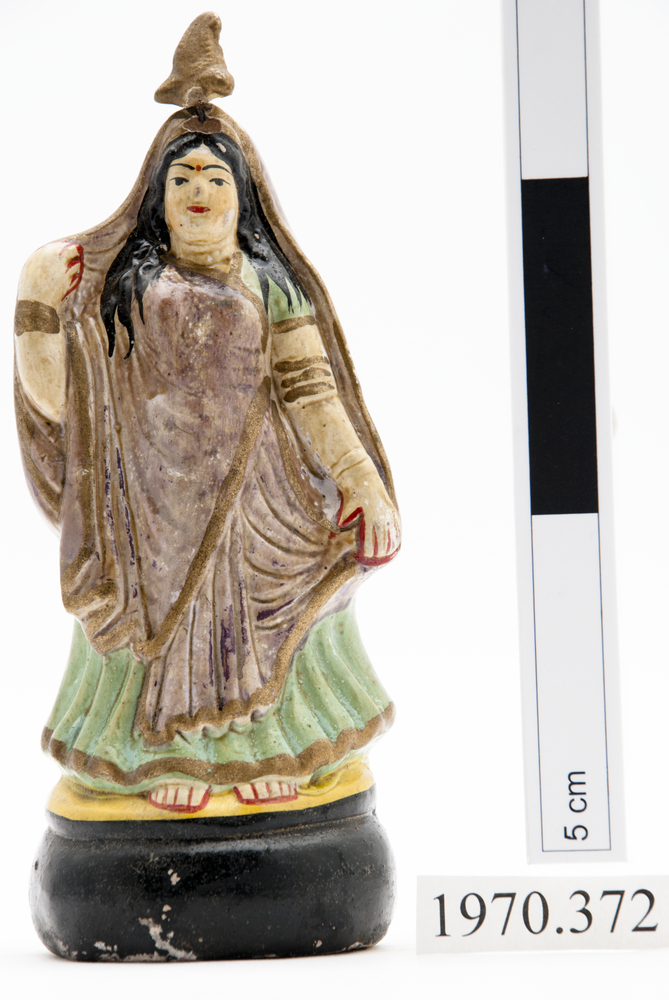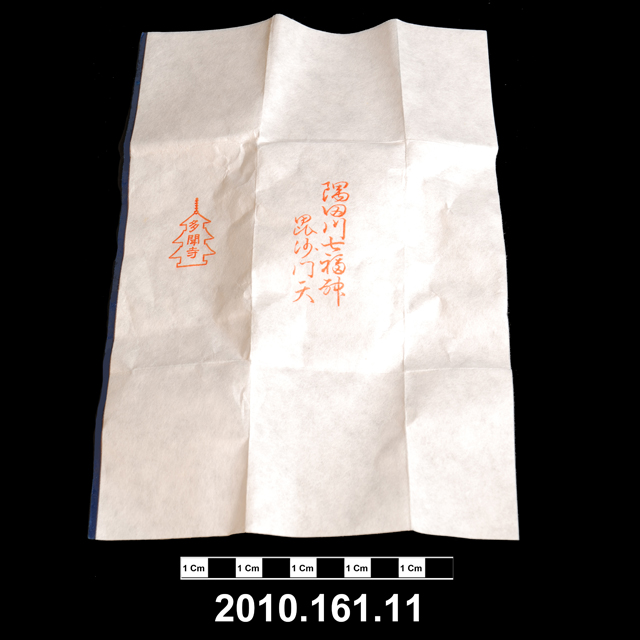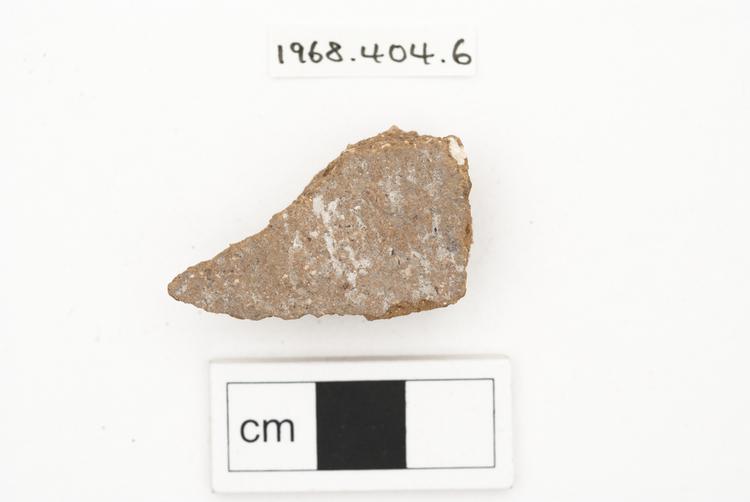

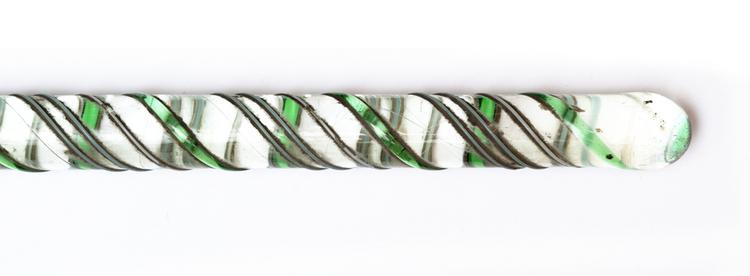
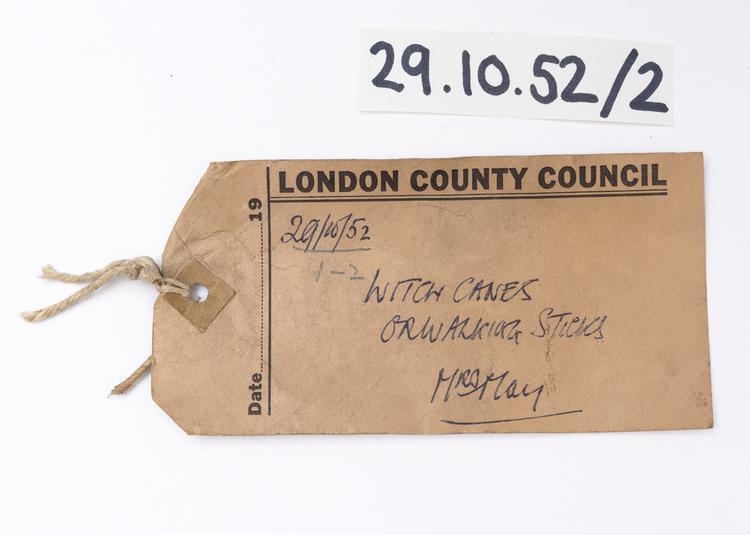
Witch cane or walking stick, made of clear glass. Solid glass rod with a knob handle and green and white coloured bands running spirally down the length of the rod.
Witch canes or witch walking sticks were often placed in a bedroom between the bed and the fireplace in order to absorb the evil spirits that caused disease, particularly the ague (malaria). They had to be cleaned carefully each morning to remove any evil that had attached itself to them and to break one would certainly cause bad luck. The main manufacturer of witch canes appears to have been the Nailsea glassworks in Somerset, where they were made from around the mid-eighteenth century to the mid-nineteenth century. Witch canes have a certain amount in common with witch balls (also mainly manufactured by Nailsea), except that whereas witch balls were generally intended to reflect away evil, the spiral patterns of the walking sticks and canes were probably thought to confuse and trap it. Our witch canes contrast with the majority of the Horniman’s collection of British charms in that they are not ‘found objects’, but manufactured specifically for magical use. Similar manufactured charms include the witch balls 33.63 and 36.173 and charms 19.105 and nn3583.




